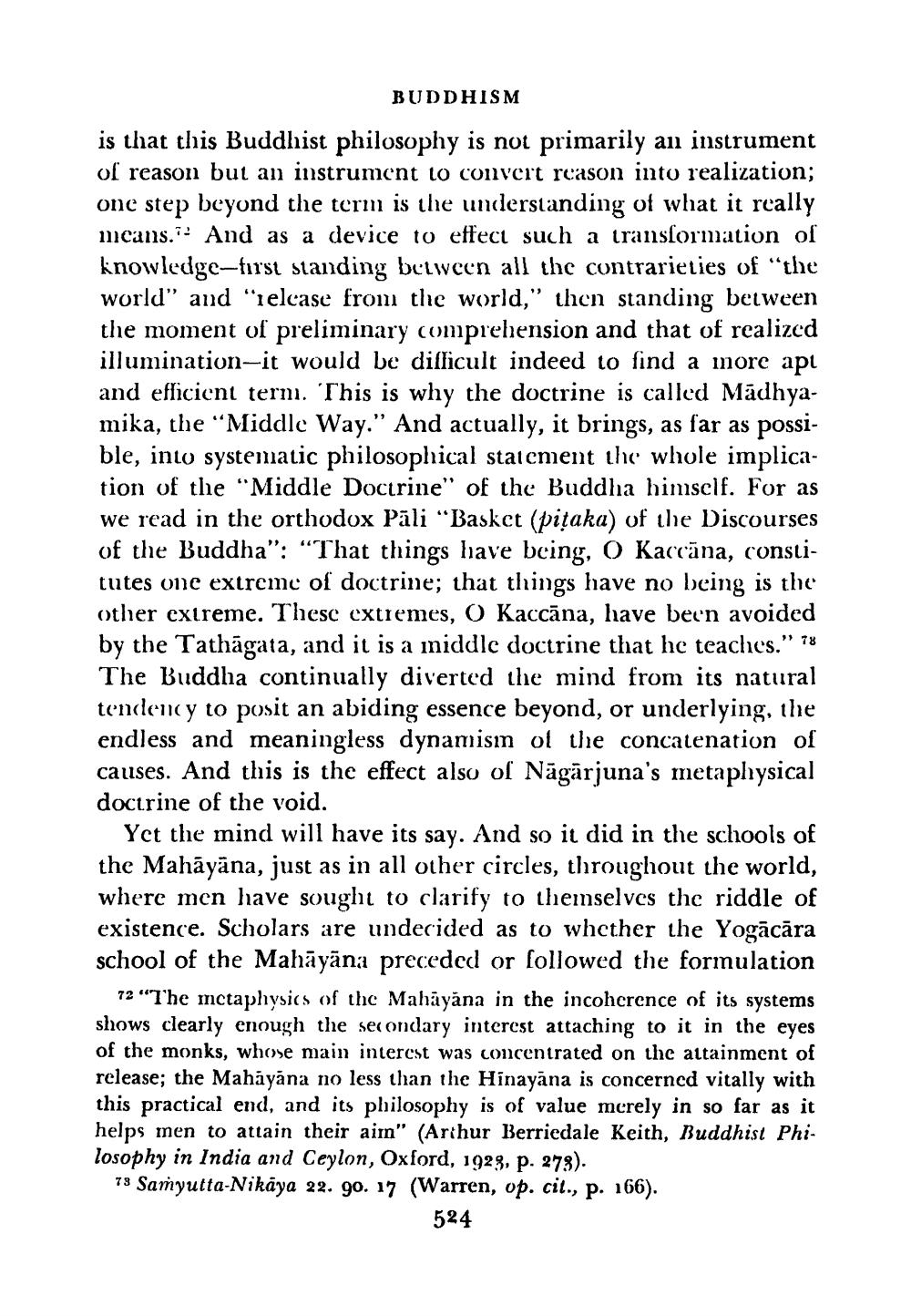________________
BUDDHISM
is that this Buddhist philosophy is not primarily an instrument of reason but an instrument to convert reason into realization; one step beyond the term is the understanding of what it really means. And as a device to effect such a transformation of knowledge-first standing between all the contrarieties of "the world" and "release from the world," then standing between the moment of preliminary comprehension and that of realized illumination-it would be difficult indeed to find a more apt and efficient term. This is why the doctrine is called Madhyamika, the "Middle Way." And actually, it brings, as far as possible, into systematic philosophical statement the whole implication of the "Middle Doctrine" of the Buddha himself. For as we read in the orthodox Pāli “Basket (piṭaka) of the Discourses of the Buddha": "That things have being, O Kaccāna, constitutes one extreme of doctrine; that things have no being is the other extreme. These extremes, O Kaccāna, have been avoided by the Tathāgata, and it is a middle doctrine that he teaches." 78 The Buddha continually diverted the mind from its natural tendency to posit an abiding essence beyond, or underlying, the endless and meaningless dynamism of the concatenation of causes. And this is the effect also of Nagarjuna's metaphysical doctrine of the void.
Yet the mind will have its say. And so it did in the schools of the Mahāyāna, just as in all other circles, throughout the world, where men have sought to clarify to themselves the riddle of existence. Scholars are undecided as to whether the Yogācāra school of the Mahāyāna preceded or followed the formulation
72 "The metaphysics of the Mahayana in the incoherence of its systems shows clearly enough the secondary interest attaching to it in the eyes of the monks, whose main interest was concentrated on the attainment of release; the Mahāyāna no less than the Hinayana is concerned vitally with this practical end, and its philosophy is of value merely in so far as it helps men to attain their aim" (Arthur Berriedale Keith, Buddhist Philosophy in India and Ceylon, Oxford, 1923, p. 273).
73 Samyutta-Nikaya 22. 90. 17 (Warren, op. cit., p. 166).
524




